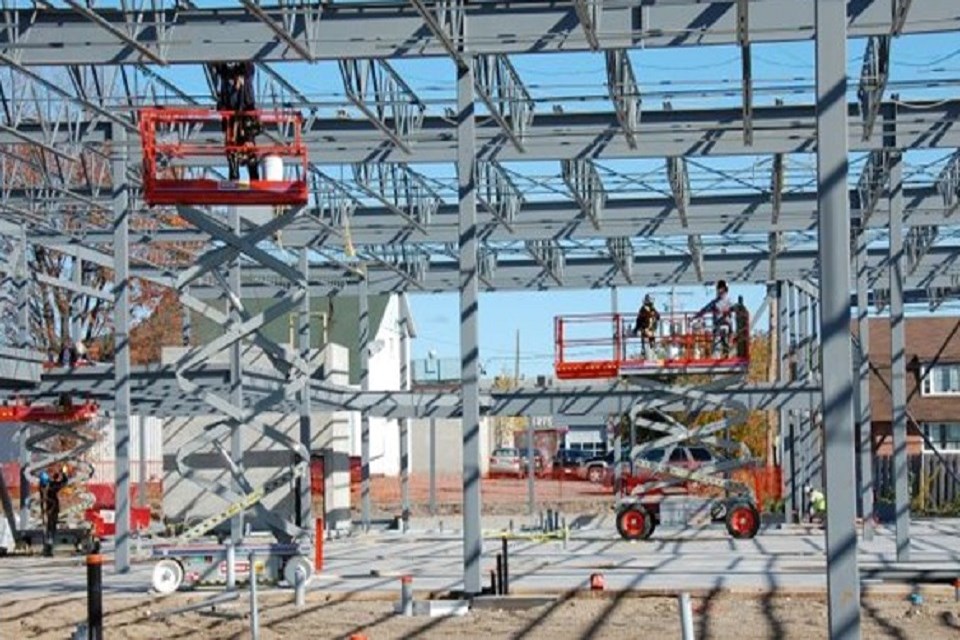North Bay City Council has adopted a housing target of 1,000 new residential units to be created by 2031 as part of the Ford government's “Municipal Housing Pledges and Targets, Strong Mayor Powers and Building Faster Fund,” and is positioning the City of North Bay to leverage provincial and federal funding to meet that goal.
On August 21, the Ontario government assigned housing targets to 21 additional municipalities, including North Bay, as part of its plan to build at least 1.5 million homes by 2031. Included in the plan is a three-year, $1.2 billion dollar funding, representing $400 million per year to municipalities that have committed in writing to achieving their respective housing target. Those municipalities will be funded based on their percentage of the provincial housing target.
The 1,000 housing unit target from the Ministry of Municipal Affairs and Housing represents 0.067 per cent of the total provincial housing target of 1.5 million homes or 100 new local housing units per year until 2031. North Bay's 0.067 per cent share of the $1.2 billion fund amounts to $800,000.
"Performance will be evaluated by comparing the municipality’s number of housing starts and additional residential units created in a given calendar year against the annual target," according to this City of North Bay report.
Mayor Peter Chirico must respond to the Ministry of Municipal Affairs and Housing in writing by October 15, "confirming a commitment to meet the target. In
addition, the letter states that the government will also extend Strong Mayor powers to those municipalities that commit to the newly assigned housing
targets," which Chirico has stated he will not use because the provincial target can be met.
See also: Local impact of Ford's 'strong mayor' announcement unclear
And: Strong mayor? Don't care, say many small-town mayors
With the housing target accepted, the province requested that the City prepare a "Housing Pledge" by December 15. This pledge "would showcase the strategies and actions that the City will take in order to achieve the housing target. The Housing Pledge would be very similar to the City’s Housing Action Plan."
See related: City's 'Housing Action Plan' opens door to federal funding
Federal funding is also up for grabs. With the aim of increasing the overall annual housing supply, North Bay City Council accepted and approved modifications to the City of North Bay's Housing Action Plan during its July 11 regular meeting. The council approved modifications, including the provision of financial incentives for properties developing Additional Dwelling Units (ADUs), and high-density residential developments. These incentives are contingent upon obtaining funding from the Canada Housing Mortgage Corporation's (CMHC) Housing Accelerator Fund (HAF).
See: the full City of North Bay Housing Action Plan
"The Building Faster Fund along with the Housing Accelerator Fund would give the City substantial senior-level government funding directly for housing-related projects and infrastructure," per the report. "With the boost in funding, the City would work with the private and public sector (DNSSAB) and the public to encourage
development to take place and for new housing and renovated houses to incorporate ADUs, where possible."
See also: Growth update pivots to discussion on local affordable housing shortage
The target dates for the new housing run between January 1, 2022, and December 31, 2031. The City has issued building permits for a total of 242 housing units from January 1, 2022, to September 9, 2023. With an average of 97 dwelling units constructed per year over a recent five-year period, the City made changes to encourage more housing units and, within the past three years, and this resulted in an increase to an average of 123 dwelling units created per year.
"The City anticipates a continued trend of increased housing units ... and has applied to the federal government's Housing Accelerator Fund (HAF). If successful through this funding, the City anticipates that 837 units would be constructed within a three-year period which would," exceed the provincial target of 1,000 by 2031. "If successful through the HAF funding, the City would implement the 10 initiatives identified through the City’s Housing Action Plan. The HAF may provide up to approximately $18 million to the City to implement the initiatives which include additional incentives to developers and property owners to create hidden density and intensification through ADUs and simplify residential zoning."




